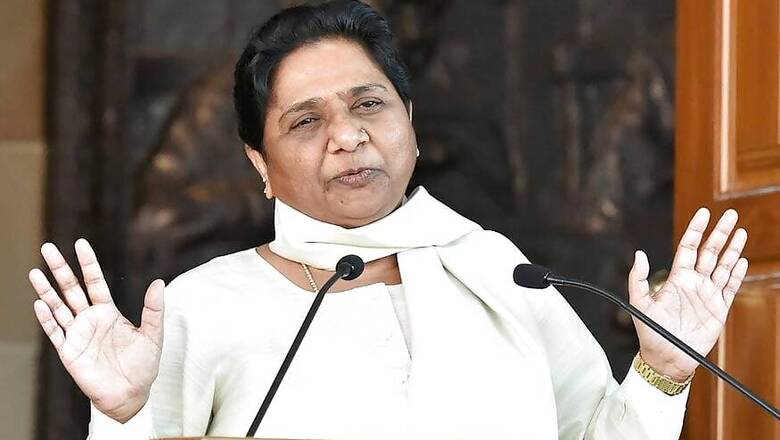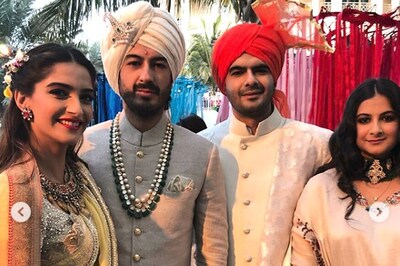
views
New Delhi: After the disintegration of the Janata Dal in early 1991, the socialists in Uttar Pradesh were at sea.
Few months later, General Elections saw the return of the Congress government at the Centre, led by PV Narasimha Rao. In Uttar Pradesh, Kalyan Singh won a comfortable majority to lead the first majority BJP government in Uttar Pradesh.
A section in erstwhile Janata Dal which broke away to form Samajwadi Janata Party (SJP) led by Chandra Shekhar wanted to have truck with the Congress to take on the challenge posed by the BJP. But Mulayam Singh Yadav had other plans.
The Lok Sabha elections to Etawah had been countermanded in the face of violence and reports of massive rigging. By-elections were slated for the November of 1991. The BJP and SJP were in direct contest for a seat seen to be Mulayam’s pocket borough.
Interestingly, BSP founder Kanshi Ram, then trying to find his feet in the national politics, also filed nomination papers.
“It was on polling day that we realised what had happened when our polling agents were seen mobilising votes for the BSP. Hamare baste pe hathi ko vote pad rahe the,” recalled a close aide of Mulayam many years later. It later came to light that Mulayam had clandestinely transferred his party votes to BSP that elections.
Kanshi Ram, after many failed attempts, had won his first direct election to enter the Lok Sabha. Mulayam Singh Yadav in the process had successfully experimented with the OBC-Dalit-Muslim combination.
A year later, in October 1992, Mulayam formed his own party. In 1993, the Samajwadi Party and BSP came together to defeat BJP at the peak of the Ram Temple movement to form a coalition government.
‘Mile Mulayam Kanshi Ram, hawa mein ud gaye Jai Shri Ram’ was the common refrain among euphoric alliance supporters as the BSP tasted victory to win power in a decade since its formation in early’ 80s.
The SP-BSP government, however, could not complete its full term, with Kashi Ram withdrawing support after the infamous VIP guesthouse case in Lucknow to hoist Mayawati as the chief minister with BJP support.
The second time Kanshi Ram ever got into a pre-poll alliance was in 1996 with the Congress. A senior Congress leader, who won the assembly polls the same year, recalled how the “committed BSP supporters would seek just basic help and support to ensure complete and total vote transfer to the Congress”. The vice-versa, however, did not happen.
It was a lesson in electoral politics for the BSP. Which is why, for many years thereafter, the party never sought a pre-poll alliance with anyone — in UP and outside.
But in the last two decades, a lot of water has flowed down the Yamuna, skirting past Etawah.
The BSP, after reaching its pinnacle in 2007, has drawn a naught in the last Lok Sabha elections. The question is — will ‘behenji’ Mayawati finally make tactical adjustments and seek pre-poll allies to stem the downslide?
Since she quit Rajya Sabha in a huff last year, Mayawati has kept a low profile. In the last one month, however, she has indicated her intent to do business with other parties and probe the plausibility of pre-poll alliances.
In Karnataka, Mayawati has agreed to play junior partner to the JD(S). In UP, she has lent support to SP candidates in Phulpur and Gorakhpur. But does that mean BSP is ready for a larger national coalition against the BJP at the centre? Because no two elections are the same and in electoral politics, two plus two is not always four.
Mayawati once famously called the BJP and Congress nagnath and saapnath. In the current political scenario, the BSP chief knows which is which and more detrimental to her party.
In politics, there are no free lunches. At the right time, probably closer to the elections, Mayawati like her mentor Kanshi Ram will take the larger call on alliance to suit the larger prospects of her party.




















Comments
0 comment